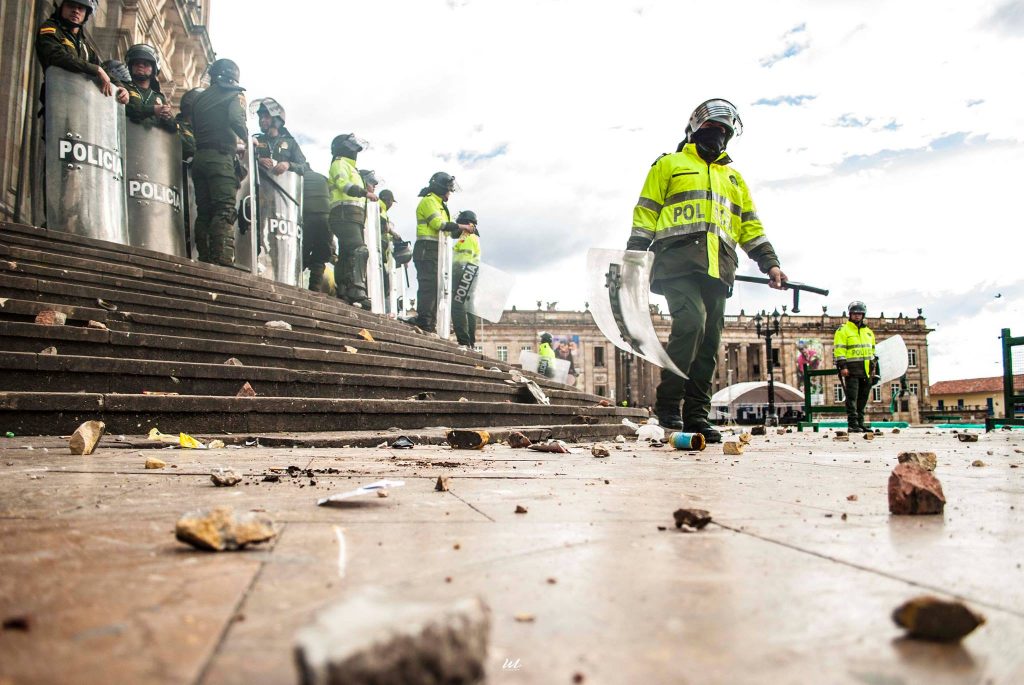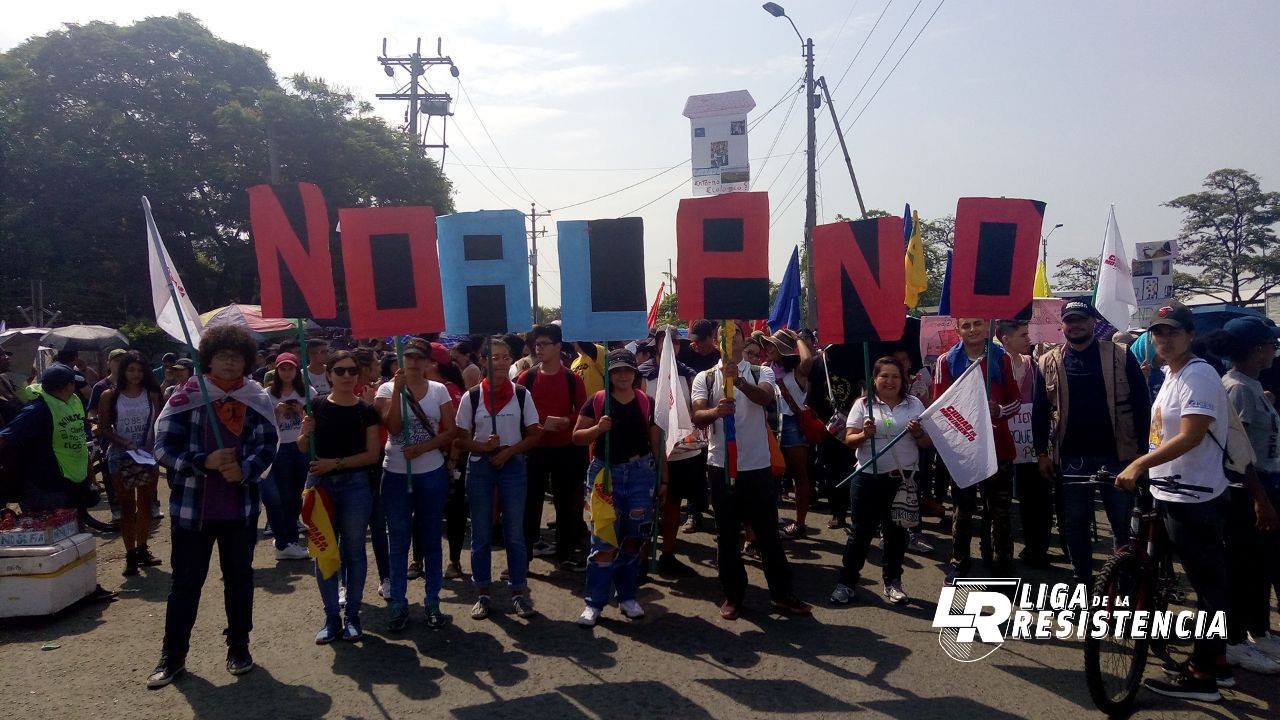On April 25, as part of the National Strike, hundreds of thousands of workers, teachers, students, doctors, pensioners, peasants, Indigenous and Afro-descendant peoples mobilized across Colombia in defense of life, land, democracy and peace as well as in rejection of the neoliberal and extractive policies of the right-wing government president Ivan Duque.
The strike saw participation from several different sectors of Colombian society with their diverse sets of demands. However, in a unified manner, they demanded the respect of Peace Agreements signed between former government of Juan Manuel Santos and former guerrilla group Revolutionary Armed Forces of Colombia (FARC) as well as expressed their rejection of the National Development Plan (PND) proposed by Ivan Duque’s government.
The other motivating factor in the strike, the PND, which is scheduled to be adopted by the Congress of Representatives on May 7, has been greatly criticized. The plan is based on the recommendations of the International Monetary Fund (IMF) and the proposals for economic “development” are based on the extraction of natural resources. It also includes reforms that are against peasants, workers and other social sectors of the society.
Trade unions, teachers and students took the streets with their demands for an increased budget for education that guarantees free education, food and transportation for all. Doctors demonstrated to draw attention to the crisis in the health care sector with respect to health care professionals as well as patients: lack of accessibility to medical consultation, systematic weakening of the hospital infrastructure, arbitrary transfer of medical practitioners, precarious working conditions of health care workers, etc. Pensioners mobilized to demand better pension and retirement plans.
Large sectors of Colombia’s peasantry mobilized to demand constitutional recognition of peasants as social and political subjects, policies that benefit the sector, converse the traditional peasant culture and stop agro-industrial model. Social and human rights activists mobilized condemning the increase in criminalization, stigmatization, persecution and assassination of social leaders and Indigenous and Afro-descendant communities. They also demanded that the government take measures to guarantee security to social leaders and resume peace negotiations with the National Liberation Army (ELN) to ensure stable and lasting peace in the country.
In Bogotá, tens of thousands of people marched from different parts of the city to the Plaza de Bolivar. Mass mobilizations were also carried out in the cities of Barranquilla, Bucaramanga, Cali, Cartagena, Medellin, Monteria Pasto, Popayán and Tunja. Peasants, Indigenous and Afro-descendant peoples blocked the highway between Pereira city in the department of Risaralda and Quibdo city in the department of Choco. Several other important roads were also blocked across Colombia. The call for the national strike was given by around 190 social movements, trade unions, political parties, Indigenous and Afro-descendant organizations.
The day also witnessed heavy presence of police security forces across the national territory. Around 20,000 troops were deployed throughout the country and over 3,000 in Bogota. Several incidences of violent police repression were reported in Bogota and in the department of Antioquia and Bolivar. At Plaza de Bolivar, the officials of the Mobile Anti-Disturbance Squad (ESMAD), a special unit of the Colombian national police, brutally repressed peacefully protesting people. The ESMAD officials pushed people and threw tear gas that affected thousands of demonstrators. In addition, the national army and police tried to obstruct the mobilization in North Santander. However, despite violent police repression, mobilizations continued.


Colombia’s National Strike was also felt internationally with acts and mobilizations held in London, UK, Buenos Aires, Argentina, and Caracas, Venezuela. In Buenos Aires, activists participated in the round of the Mothers of Plaza de Mayo and extended a banner with the names of the 600 social leaders who have been assassinated since the peace agreements were signed in 2016.

At the end of the day, the Congreso de los Pueblos, social and political force of the Colombian social movements, gave the call for a Humanitarian Refugee camp. “This was just a warm up of the mobilization, the strike is still active in several parts of the country and the social and peoples organizations are calling for the Humanitarian Refuge for the life of men and women social leaders, an event that will take place from April 28 to May 2 in Bogota, to denounce the murders and prosecutions of those who defend life, territories and rights of their communities,” said Congreso de los Pueblos in a statement.





